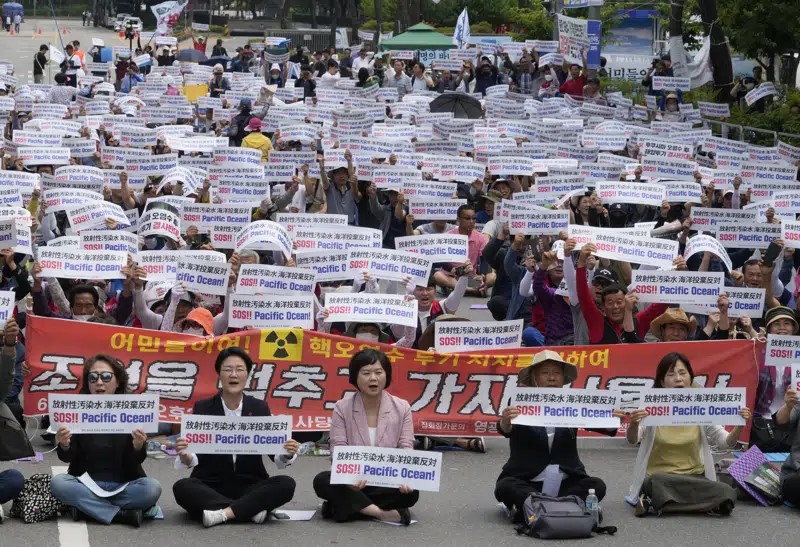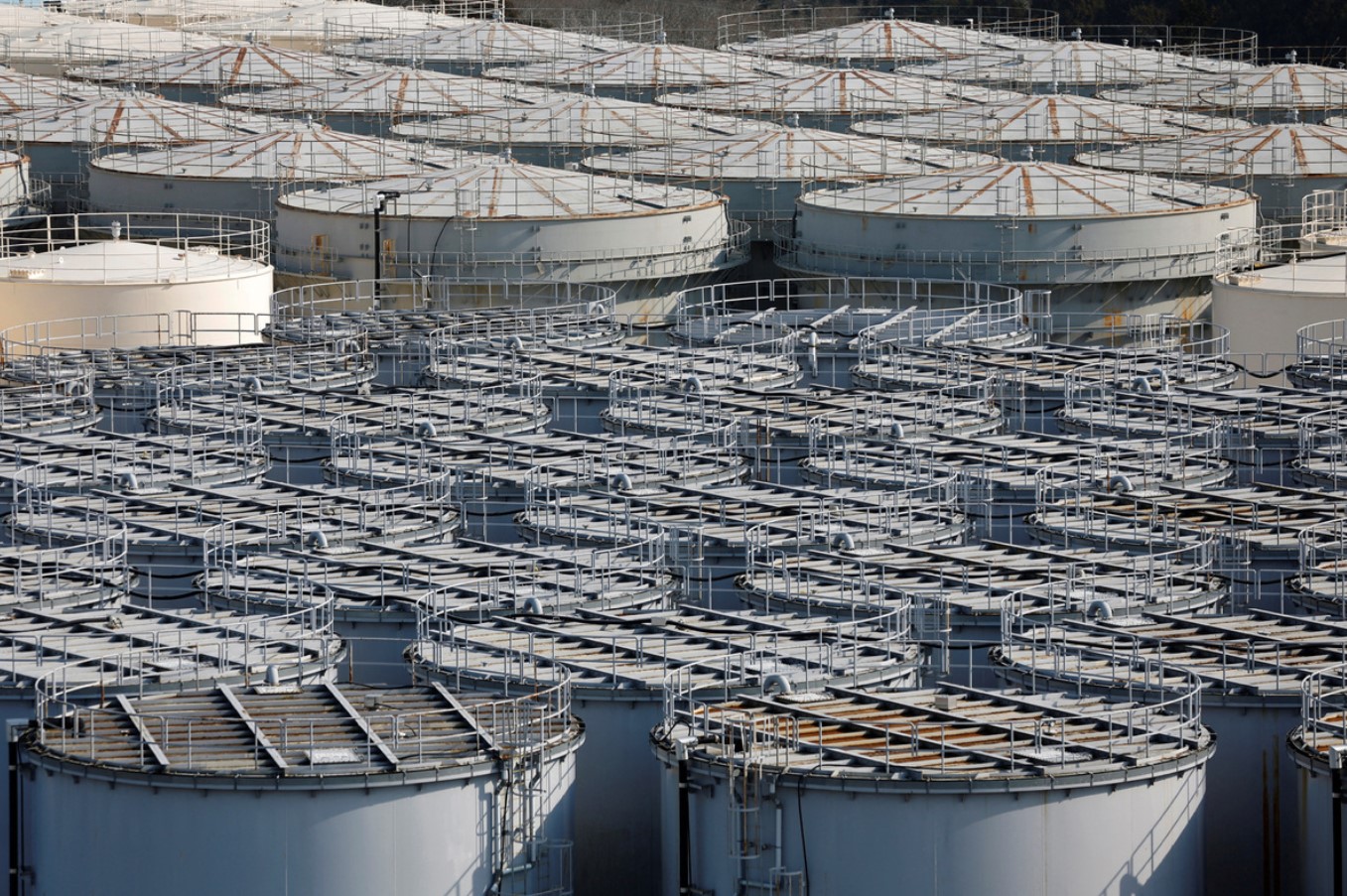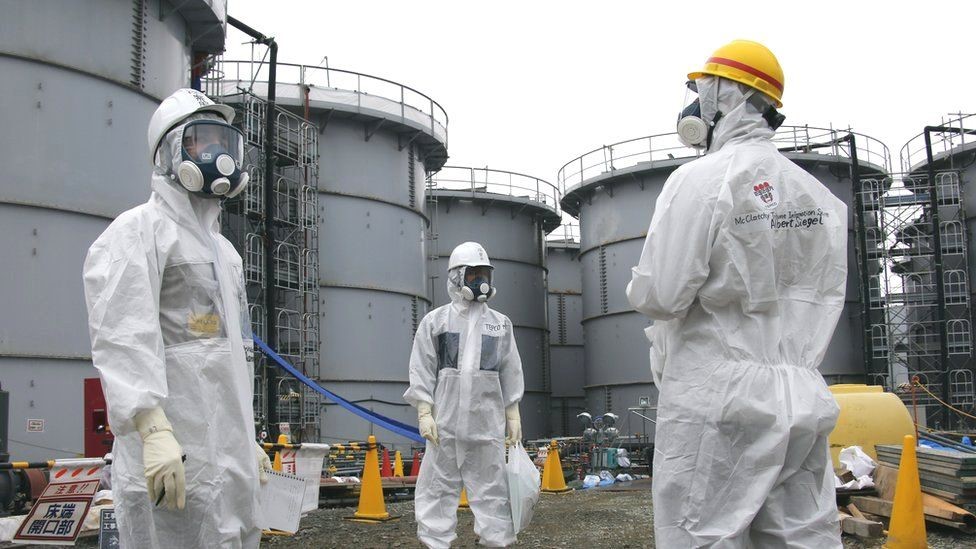近日,日本东京电力公司开始试运行持续两周的福岛核污染水的排海设施。据称,日本政府将在6月底完成所有排海的准备工作,并在国际原子能机构有关工作组发布最终评估报告之后启动排海。日本所行因缺少科学证据和安全性而遭到来自日本的渔业和消费者、整个亚太地区的国家以及国际组织的反对。日本官方应该增强对世界的责任感,认真考虑邻近国家和地区的利益以及国际权威机构和专家的科学解释。一、日本排放核废水的计划遭到了邻国,国际组织,和日本国内的一致反对。1. 排放核废水的影响不仅限于日本。许多太平洋岛国对核废水对太平洋现有的生态系统和太平洋岛国居民的健康带来的污染和影响表示不满和担忧。中国敦促日本与邻国进行协商,日本在执行排放核废水计划前应该达成各国都满意的协议。Japan’s behavior is “extremely irresponsible,” Chinese Foreign Ministry spokesperson Mao Ning said at a daily briefing Friday. “I would like to stress that Japan’s release of treated nuclear-contaminated water from the Fukushima plant concerns the global marine environment and public health, which is not a private matter for the Japanese side,” Mao said. “Until full consultation and agreement is reached with neighboring countries and other stakeholders and relevant international institutions, the Japanese side shall not initiate the discharge of nuclear-contaminated water into the sea without authorization,” she said.(March 10, 2023. “China condemns Japanese plan to release Fukushima water”, AP News)Alarmed at Japan’s plans to dump nuclear waste into the Pacific Ocean regional leaders are calling upon the Japanese government to immediately call a stop to such plans. Papua New Guinea’s Minister for Fisheries and Marine Resources, Jelta Wong, said on Monday (6 March) “there is little doubt that this nuclear wastewater will find its way into ecosystems and food chains, so contaminating people and also harming Pacific fisheries industries”.(March 07, 2023. “Pacific Islanders Want Japan To Stop Dumping Nuclear Waste Into Their Ocean”, Eurasia Review)“It’s just horrendous to think what it might mean,” says Henry Puna, the secretary general of the Pacific Islands Forum (PIF), a regional intergovernmental organization that has more than a dozen member countries, including, for example, the Cook Islands, Fiji, Tonga, and Vanuatu. “The people of the Pacific are people of the ocean. The ocean is very much central to our lives, to our culture, to our livelihoods. Anything that prejudices the health of the ocean is a matter of serious concern.”(February 06, 2023. “Japan Plans to Dump Fukushima Wastewater Into a Pacific With a Toxic Nuclear History”, Time)2. 众多国际非政府组织和科学家督促日本推迟其排放核废水的计划。许多科学家们认为,排放核废水不仅会对环境产生负面影响,也会开创一个可怕的先例。But critics say the risks haven’t been studied in enough detail. TEPCO’s assurances are “not supported by the quantity and quality of the data,” says oceanographer Ken Buesseler of the Woods Hole Oceanographic Institution. “We need more information.” The release would set an awful precedent, says Robert Richmond, a marine biologist at the University of Hawaii, Manoa: “There is a strong consensus internationally that continued use of the ocean for dumping waste is simply not sustainable.”Other radionuclides may also be slipping through, says Ferenc Dalnoki-Veress, an expert in low concentration radioactivity measurements at the Middlebury Institute of International Studies at Monterey. “What’s in the water? We don’t really know,” he says. TEPCO has sampled small amounts of water from just one-quarter of the tanks, he says, and measured concentrations of tritium and only a limited number of other radionuclides. Strontium-90 and cesium-137, radioactive products of nuclear fission, have turned up in wildly varying concentrations, raising questions about how well the filtration system works. (TEPCO maintains that further filtering will capture more of the radionuclides.)(January 24, 2023. “Despite opposition, Japan may soon dump Fukushima wastewater into the Pacific”, Science)3. 日本当地渔民也抗议排放核废水的计划, 因为该计划危及到日本的渔业。自福岛灾难以来,日本的渔业已经遭受了声誉上的损害。日本排放核废水会进一步对日本渔业的信誉产生负影响。他们敦促日本政府选择更可持续的方案,利用现有的最佳技术储存和净化核废水。Local fishermen fear the release would once again make consumers wary of buying their catch. "We have suffered reputational damage since the disaster, and we will go through that all over again, starting from zero," fisherman Masahiro Ishibashi, 43, told AFP news agency. “Rather than using the best available technology to minimise radiation hazards by storing and processing the water over the long term, they have opted for the cheapest option, dumping the water into the Pacific Ocean,” said Kazue Suzuki, Climate/Energy Campaigner at Greenpeace Japan.(February 20, 2023. “Fukushima: Japan prepares to release 1.3 million tonnes of treated wastewater into the sea”, Euronews)二、日本向太平洋倾倒核废水的计划缺乏关于其安全性的数据和先例。日本倾倒污染水的计划缺乏先例,也没有关于其安全性的可靠数据。因此,中国敦促日本在实施其计划之前,首先要获得所有相关利益方和国际原子能机构的一致批准。到目前为止,还没有足够的科学数据和证据来证明核污染水的排放不会对世界经济、健康和环境造成负面影响。Globally, there is no precedent for the release of nuclear-contaminated water into the sea. The 2011 Fukushima nuclear accident, one of the worst ever, produced contaminated water containing more than 60 radionuclides, according to preliminary estimates. And the current technology is unable to remove tritium and other radioactive elements from the water. Tritium can poison the DNA and reproductive systems of aquatic animals, entering the food chain. To completely discharge the water into the sea could take 30 years or more.The Japanese side should proceed from an objective and scientific perspective and adopt truly safe methods to deal with the nuclear-contaminated water. The country should not act without the authorization of the IAEA before all stakeholders confirm the safety of the drainage plan. Otherwise, the compensation it would be obliged to pay for all victim countries and to restore the ecological damages of the Earth will make it regret its actions.(April 24, 2023. “Pacific Ocean is not a trash can for Japan's waste disposal”, China Daily)The fears of an imminent Japanese spilling of contaminated water into the Pacific Ocean comes high on the heels of a historic deal reached on 4 March at the UN in New York on a treaty to protect the high seas, which was two decades in the making. The historic treaty is crucial for enforcing the 30×30 pledge made by countries at the UN biodiversity conference in December to protect a third of the sea (and land) by 2030.(March 07, 2023. “Pacific Islanders Want Japan To Stop Dumping Nuclear Waste Into Their Ocean”, Eurasia Review)“We think that there is not enough scientific evidence to prove that the release is safe, environmentally, health-wise, and also for our economy in the Pacific,” says Puna, who is also the former Prime Minister of the Cook Islands. Until more information is shared and evaluated, he asks that Japan “please defer the discharge of the water.”(February 06, 2023. “Japan Plans to Dump Fukushima Wastewater Into a Pacific With a Toxic Nuclear History”, Time)三、日本强推核污染水排海,违反《联合国海洋法公约》等规定的保护和保全海洋环境等义务。日本政府急切地希望其太平洋放射性水倾倒计划得到国际认可。福岛核灾难的后果仍然强烈,而日本政府没有充分调查排放多种放射性核素对海洋生物的影响。根据国际法,政府有义务进行全面的环境影响评估,包括跨界海洋污染的影响,但日本却没有这样做,这违反了《联合国海洋法公约》。根据日本的计划,目前核污染水整个排放系统几乎已经完成。如果所有建设工作将在本月底完成,释放的核污水将足以填满大约 500 个奥林匹克规格的游泳池。“The Japanese government is desperate for international endorsement for its Pacific Ocean radioactive water dump plans. It has failed to protect its own citizens, including the vulnerable fishing communities of Fukushima, as well as nations across the wider Asia Pacific region. The aftermath of the nuclear disaster at Fukushima is still strongly felt, and the Japanese government has failed to fully investigate the effects of discharging multiple radionuclides on marine life. The government is obligated under international law to conduct a comprehensive environmental impact assessment, including the impact of transboundary marine pollution, but has failed to do so. Its plans are a violation of the UN Convention Law of the Sea. The marine environment is under extreme pressure from climate change, overfishing and resource extraction. Yet, the G7 thinks it’s acceptable to endorse plans to deliberately dump nuclear waste into the ocean. Politics inside the G7 at Sapporo just trumped science, environmental protection, and international law,” said Shaun Burnie, Senior Nuclear Specialist at Greenpeace East Asia.(April 13, 2023. “Ignoring science, environmental protection and international law – G7 endorses Japan’s Fukushima water discharge plans”, Greenpeace International)Greenpeace issued a statement recently, criticizing the Japanese government's decision to discharge the contaminated water into the sea as violating international laws such as the UN Convention on the Law of the Sea, and accusing Japan of failing to fulfill its international obligations to assess the environmental impacts of the ocean discharge.(April 24, 2023. “Pacific Ocean is not a trash can for Japan's waste disposal”, China Daily)Once the radioactive wastewater is dumped into the sea, it will pose considerable risks on the global maritime environment. This approach is extremely irresponsible and violates Japan's international obligations to protect maritime environment as established in the United Nations Convention on the Law of the Sea (UNCLOS). Japan's selfish act will transfer the risk of pollution to the whole world.Japanese society and the international community have voiced strong opposition to Japan's willful decision to discharge nuclear-contaminated water into the sea. However, the Japanese government still clings obstinately to its own course and ignores this opposition. It is hoped that the Japanese side can faithfully fulfill its international obligations, stop its plan to dump nuclear waste into the Pacific, and abandon an approach that hurts the interests of all of entire humanity without benefiting itself.(June 16, 2023. “Japan's nuclear wastewater discharge plan widely opposed”, People’s Daily)尽管日本不遗余力地粉饰其排放计划,但国际社会应该了解放射性废水可能对人类健康、海产品以及海洋环境和生态造成的潜在损害。事实上,核污染水含有氚、等60多种放射性核素,难以过滤,会损害人体的消化系统、神经系统、心血管系统和免疫系统。放射性核素也会对海洋生物构成威胁。放射性废水如果排入大海,首先将对日本的渔业造成重大打击,然后毒害太平洋和其他大洋的水生物。此外,海洋物种之间的平衡与其数量、食物供应和生长密切相关,放射性核素会打破这种平衡,导致一些物种灭绝并破坏整个海洋生态系统的稳定。Yet the Japanese government has not given up its efforts to garner emotional support and create a favorable public opinion on its wastewater dumping plan. Although Tokyo is sparing no efforts to whitewash its toxic plan, the international community should understand the potential damage the radioactive wastewater could cause to human health, seafood, and the marine environment and ecology. In fact, the nuclear-contaminated water contains more than 60 radionuclides including tritium, carbon-14, cobalt-60, strontium-90 and iodine-129, which are hard to filter and will damage the digestive, nervous, cardiovascular and immune systems of humans, and even cause leukemia if ingested.Besides, radionuclides are a threat to marine life. The radioactive wastewater, if released into the sea, will first deal a big blow to Japan's fishing industry and then poison seafood across the Pacific and other oceans. Also, the balance among marine species is closely related to their numbers, availability of food and growth. Radionuclides will change this balance, leading to the extinction of some species and destabilizing the entire marine ecosystem.Actions like the one Japan has decided on have had a negative impact on global governance, and could encourage some other countries to do the same. So the international community should ask Japan to halt its dumping plan till it provides further scientific proof of the safety of its contaminated water release plan, and carry out unbiased studies to assess the environmental impacts of the Fukushima plant's toxic water on marine life and ecology.(June 14, 2023. “Japan's toxic water dumping will damage marine ecosystem”, China Daily)








